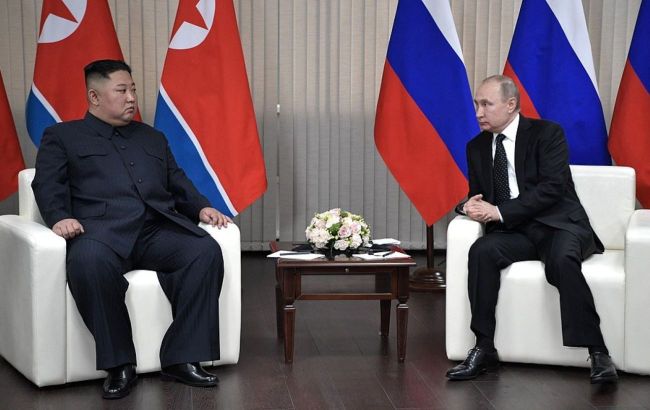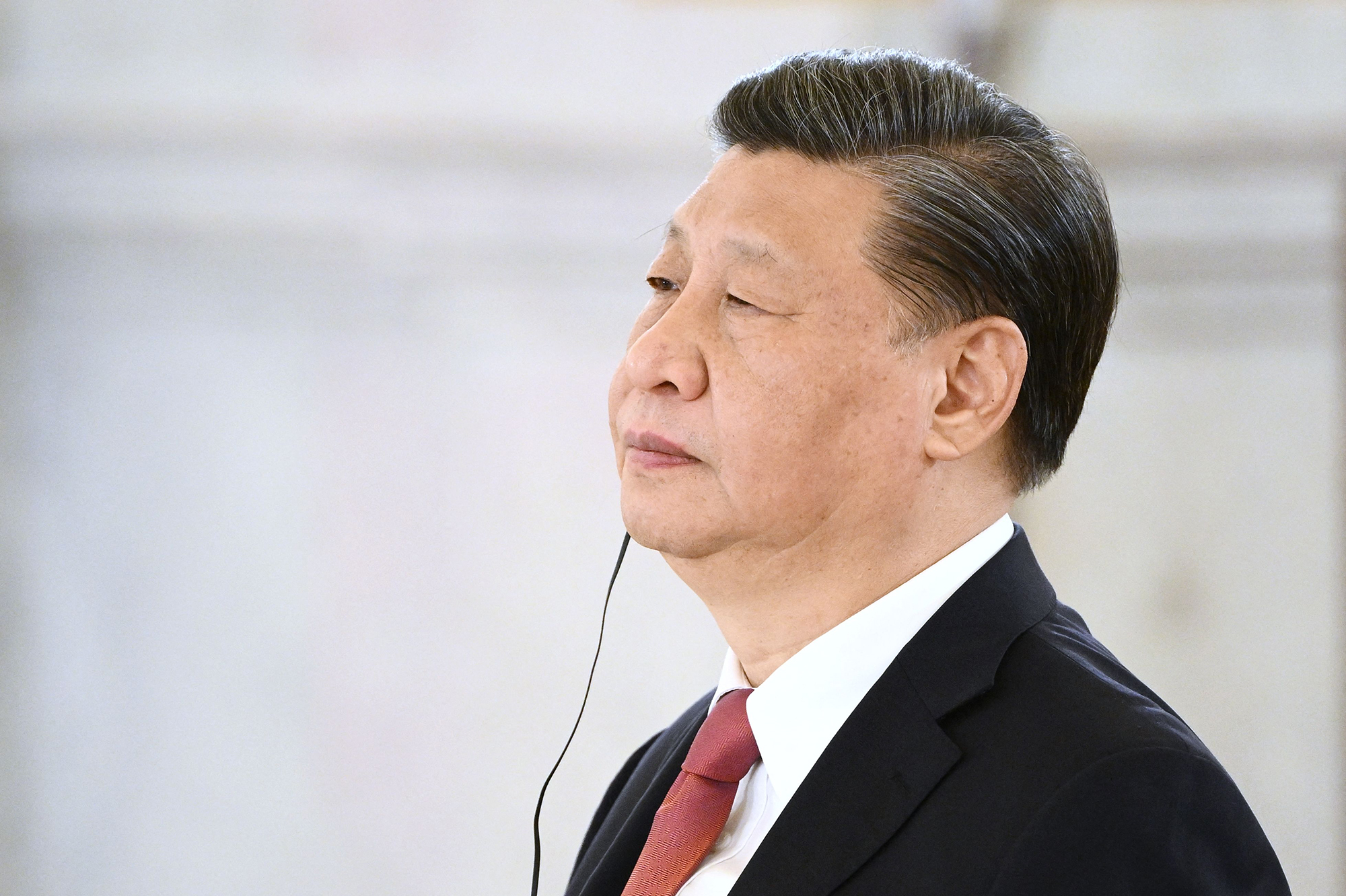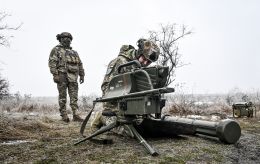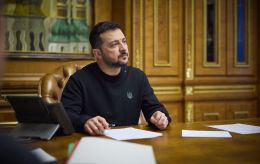World outcasts: Why Putin seeks alliance with North Korea and are there any threats to Ukraine
 Kim Jong Un and Vladimir Putin (kremlin.ru)
Kim Jong Un and Vladimir Putin (kremlin.ru)
The North Korean leader Kim Jong Un will meet with President of Russia Vladimir Putin in the coming days, and it is expected that they will discuss arms supplies. RBC-Ukraine provides key insights on the potential alliance of world outcasts and whether it poses a threat to Ukraine.
Putin wants artillery shells, while Kim is interested in satellite technology and nuclear submarines, according to The New York Times. The leaders of Russia and North Korea may reach an agreement as early as September 10-13 during a meeting at the Eastern Economic Forum.
There is no precise information about whether Kim will travel to Vladivostok. However, the NYT believes that apart from the forum, he may want to visit the Pacific Fleet ships, the Vostochny Cosmodrome, and possibly Moscow.
The prospect of reaching an agreement on weapons supply to use them in the war against Ukraine causes concern among Western partners. At the end of August, White House representative John Kirby stated that Moscow and Pyongyang were actively increasing their talks, and it raised concerns in Washington.
Although closer ties between Russia and North Korea are not surprising, as they have long considered themselves strategic partners. North Korea voted against UN resolutions condemning aggression in Ukraine, and in June, Kim openly supported Putin and called the invasion a "righteous act." He also expressed a desire to hold hands with the Russian dictator.
In July, a military delegation led by Defense Minister Sergei Shoigu visited Kim to celebrate the 70th anniversary of the end of the Korean War. Formally, the sides held talks on defense matters. The White House is sure that the Russian guest asked for weapons.
"They tried to come to an agreement, but the visit did not bring the desired result. Thus, in Vladivostok, a high-caliber approach will be used, meaning Putin will directly talk with Kim Jong Un. However, in the scheme involving North Korean weaponry, surprisingly, the decisive word does not rest solely with the leader of North Korea," Oleksandr Kovalenko, a military-political expert from the Information Resistance group, told RBC-Ukraine.
Russian interest
Military cooperation between Moscow and Pyongyang dates back to the 1950s when Kim Il Sung, the grandfather of the current North Korean leader, held power with the support of Joseph Stalin.
In recent years, cooperation has weakened, especially when Russia, which has veto power in the UN Security Council, supported global sanctions in response to nuclear missile tests.
In 2017, Putin imposed restrictions on scientific and technical cooperation, trade, and banking with North Korea. North Korea was banned from using property in Russia for any purpose other than diplomatic and consular activities. Russian companies were prohibited from buying copper, nickel, silver, and zinc from North Korea and transporting them on vessels under the Russian flag.
 Vladimir Putin imposed sanctions against North Korea, now he needs its help (photo: Getty Images)
Vladimir Putin imposed sanctions against North Korea, now he needs its help (photo: Getty Images)
However, setbacks on the battlefield in Ukraine have forced Putin to reconsider. Many analysts emphasize that his forces are facing a shortage of artillery shells, which the Russian industry cannot cover. So, the decision has been made to seek assistance from abroad.
Western experts point out that similar calibers would allow Russia to use North Korean munitions immediately.
"North Korea makes good what I call heavy industrial weapons. Its artillery and ammunition are very good. It’s very similar to Russian designs," cites CNN the opinion of Karl Schuster, a former US Navy captain.
Political analyst Volodymyr Fesenko believes that the deficit can only be partially covered with North Korean munitions. It is currently challenging to determine whether they are needed by the Russians right now or as a reserve.
"It is possible that Russia is interested in artillery pieces, which often malfunction on the battlefield. But I think they primarily need ammunition. North Korea is not small, but it's not a very large country. Right now, the Russians are looking for Soviet calibers, as we did at the beginning of the war. Perhaps their arsenals are running out, or they need a reserve for the future, not just for current combat operations," he told RBC-Ukraine.
Oleksandr Kovalenko explains that Moscow is already receiving ammunition from Iran, including 152mm caliber munitions for D-20 howitzers, 122mm caliber for D-30, tank shells, and so on. Will North Korea join in the supplies? It's not guaranteed.
"I'm not sure Kim will go for it. Because if Russia had something that could interest North Korea, they would have cooperated long ago, like with Iran. They have a contract with Iran for Su-35 fighter jets, Yak-130 combat trainers, so there is mutual interest. As far as I can see, North Korea does not have such an interest. More likely, they need something that Russia cannot currently provide," he emphasized.
According to Bloomberg, there could be millions of artillery shells in North Korean warehouses. If they were sold at $1,000 per unit, a batch of 250,000 pieces could bring in an amount equivalent to 1% of its GDP.
What North Korea wants
In the West, there are concerns that agreements between Putin and Kim Jong Un could lead to North Korea gaining access to technology restricted by global sanctions. The goal of these sanctions is to prevent the emergence of fully-fledged nuclear capabilities and intercontinental ballistic missiles.
Despite sanctions, North Korea's ballistic program has been rapidly developing over the past two years. During this period, dozens of launches have been recorded, including intercontinental ballistic missiles. Theoretically, they could deliver a nuclear payload to the continental United States, but so far, North Korea has limited its launches to the Yellow and Japanese Seas. It recently simulated a nuclear strike on South Korea.
It is still unknown what North Korea's ballistic technology is capable of and whether it can reach North America. In a June 2022 report, American experts expressed doubts that North Korean missiles could withstand entry into the atmosphere on the terminal trajectory.
CNN, citing Doo Jin-ho, a researcher at the Korea Institute for Defense Analysis, writes that Russia could easily provide North Korea with various things on North Korea’s wish list: reentry technology, improved launch capabilities for submarine-launched ballistic missiles, satellite reconnaissance capabilities, and even help with launching satellites.
This year, Pyongyang made two attempts to send satellites into space, both of which failed. Moreover, they need money, energy resources, and food.
"There is a problem with hunger, so they need products, let's say, for everyday consumption - grains, cereals, bread, and so on. Of course, the main interest is in modern military technology, but what exactly Russia can provide remains a big question," emphasizes Volodymyr Fesenko.
Is North Korea willing to share shells in exchange for bread and grains? That's highly unlikely, according to expert Oleksandr Kovalenko.

Kim Jong Un needs Russian military technology (Photo: Getty Images)
In the West, there's also the view that if Russia starts buying North Korean weapons to bypass sanctions, it could inspire countries that once imported military equipment from North Korea, such as Iran, to follow suit.
"It's too complex of a scheme. Of course, Iran and North Korea are both outcast countries, but, in my opinion, such cooperation cannot happen without China's assistance as a transit country," comments Kovalenko.
Negotiations are ongoing on Iran's nuclear program, and if Tehran makes concessions, some sanctions might be lifted. This is more appealing to Iran than getting closer to North Korea, as Iran has oil it wants to bring to the global market. North Korea's external trade is highly restricted, and its economy operates mostly in isolation, so sanctions have less impact on it.
Washington has spoken about intensifying sanctions and has called for the halt of arms negotiations for Russia. Jake Sullivan, the National Security Advisor to the President of the United States, warned that North Korea will "pay a price" if it helps Russia fight in Ukraine.
However, it is unclear what additional price Pyongyang could pay.
"Ultimately, the West cannot do much. Western commentators themselves sadly joke about this. What else can they do? Impose additional sanctions? But North Korea is a clear example that they no longer work. Almost the entire world has imposed sanctions, and what? Yes, there are problems, the economy is specific, but it still works. I don't see any magical tools for the West to stop arms shipments to Russia," Fesenko told RBC-Ukraine.
On the other hand, this provides an opportunity to strengthen sanctions against Russia, particularly against companies from third countries that help it bypass restrictions. Unlike North Korea, Russia's economy is not accustomed to living in global isolation after decades of economic integration.
The Chinese factor
Experts interviewed by RBC-Ukraine specifically emphasize the role of China when discussing the possible alliance between Russia and North Korea. According to Kovalenko, if Xi Jinping does not give the green light, there will be no alliance.
In fact, the Kremlin is constantly seeking meetings with Xi Jinping to persuade Kim Jong Un through him. It was recently revealed that Putin would travel to Beijing in October for the Belt and Road conference.
"If we talk about the September meeting with Kim in Vladivostok, it won't have any significant impact by itself. The real influence can only come from Xi Jinping, but I think he has no intention of antagonizing Western countries. Despite all the rhetoric, China is too dependent on the West, and it will be very cautious," says the expert.
According to South Korean media Yonhap, Russia wants to conduct trilateral military exercises. China's agreement is still unknown, but the matter with North Korea is supposedly settled.

A Russia-North Korea alliance is impossible without the approval of Xi Jinping (Photo: Getty Images)
As Fesenko pointed out, many are currently concerned about how China will behave in the context of a potential Moscow-Pyongyang alliance.
"Will China participate in military exercises? I doubt it. And how will they react to Russian-Korean cooperation? If they lend some support and partially join, there is danger. I see certain risks from their side," he believes.
However, it is highly unlikely that China would directly engage in such cooperation. This is partly due to the historical relationship with Pyongyang.
"The Chinese have long felt that Korean dictators, whether it's the current Kim, his grandfather, or his father, have always been too independent and uncontrollable. Always on their own, always quite aggressive. There is a risk, of course, but I think other countries will not be involved in cooperation between Russia and North Korea," added the political analyst.
Threats to Ukraine
Even if Russia gains a new ally - North Korea, its munitions will not be a game-changer in the Russia-Ukraine war. According to Fesenko, they will only partially satisfy Russia's ammunition needs.
"It won't change the course of the war and won't be a catastrophe for us. It will strengthen the Russian potential to some extent, close some gaps, but it won't change the strategic situation. I would be more concerned not about North Korea transferring munitions but about Russia actually increasing production," he emphasized.
Another issue is how quickly these munitions will reach the front lines. The fact that military cargo must traverse a hypothetical Trans-Siberian Railway for 10,000 kilometers is not the biggest problem. They also need to be transported out of North Korea, whose railway system was built during the late stages of the Cold War.
"The logistics are simply hellish. It won't be able to supply the front with the necessary amount of munitions. Their railway is in a very degraded state," added Kovalenko.

